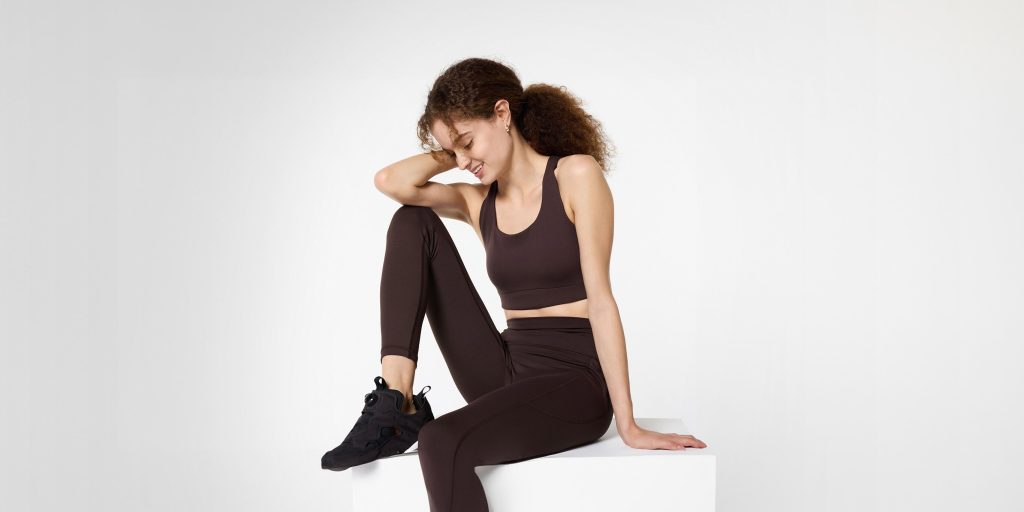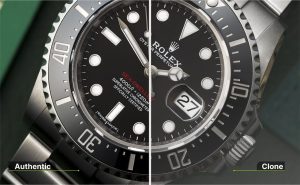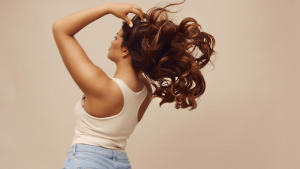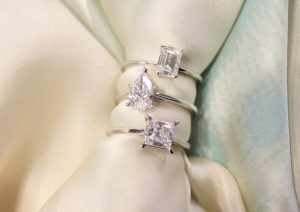While both Uniqlo and Zara have made their mark on the global fashion landscape, they cater to distinct tastes, budgets and lifestyles. So, how does one decide which brand is the right fit? Here is a holistic guide that compares Uniqlo and Zara, covering everything from fashion philosophies to sustainability.

Kareena Kapoor Khan stars in Uniqlo Fall Winter 2024 campaign. Image: uniqlo.com
As of 2024, Zara, owned by Inditex, is valued at $27.1 billion, making it the second most valuable fashion brand globally. Uniqlo, owned by Fast Retailing, has a market value of $15.1 billion, ranking sixth among the top fashion brands worldwide.
Uniqlo and Zara may appear similar at first glance—both offering stylish and affordable apparel—but a deeper look reveals significant differences in their approach to fashion. Uniqlo champions minimalism, comfort, and functionality, while Zara quickly brings the latest runway trends to the shop floor, at affordable prices.
For a shopper who has ever stood in front of a Uniqlo or Zara store wondering which one better suits their preferences, this style guide will examine the strengths of each brand to help you make an informed decision.
Table of Contents
- Uniqlo vs. Zara: Fashion Philosophy
- Uniqlo vs. Zara: Sustainability Initiatives
- Uniqlo vs. Zara: Market Positioning
- Uniqlo vs. Zara: Collaborations
- Uniqlo vs. Zara: Pricing
- Uniqlo vs. Zara: Which is the best fashion brand for you?
- 10 FAQs on Uniqlo vs. Zara
Uniqlo vs. Zara: Fashion philosophy
Uniqlo’s fashion philosophy revolves around simplicity, functionality, and timeless design. The brand’s concept, “LifeWear,” emphasises the idea that clothes should be made to improve everyday life, offering high-quality basics that are comfortable, practical, and durable. Uniqlo’s designs are understated and focus on longevity, meaning you won’t find flashy or overly trendy pieces, but rather wardrobe staples that can be worn season after season.

Uniqlo focuses on simplicity, functionality, and timeless design. Image: uniqlo.com
Per GQ — “So whether you’re looking to pad out your wardrobe with some easy-to-integrate pieces or stock up on the true building blocks of a killer contemporary wardrobe, the Japanese retailer has you covered.”
Zara embodies a fast-fashion model. The brand is renowned for quickly bringing the latest runway trends to a broad spectrum of consumers. Zara’s philosophy centres on fashion-centric pieces that are accessible and affordable. Their inventory is refreshed constantly, with new collections dropping every few weeks.
The company does not hire high-profile designers or invest heavily in crafting original designs. Its designers- young, anonymous and enthusiastic- create pieces with strict adherence to market demands. And, it is through this strategic methodology of quickly introducing new collections based on the latest fashion trends that enables Zara to stay ahead of its competitors.
The key takeaway? While Uniqlo focuses on timelessness and high quality, Zara’s mission is to democratise the latest fashion, as it happens. This difference defines each brand’s approach to fashion: one built on longevity, the other on immediacy.
Read More:
Uniqlo vs. Zara: Sustainability Initiatives
Both Uniqlo and Zara are making strides toward sustainable business practices, though their approaches differ. Uniqlo’s sustainability initiatives are built around its “LifeWear” philosophy, focusing on quality and durability, thus reducing the need for frequent replacements. One of Uniqlo’s key sustainability initiatives is its partnership with the Blue Cycle project, which reduces water usage in denim production by up to 99 percent.
Uniqlo has also committed to using sustainable materials like recycled polyester and organic cotton, aiming for environmental responsibility and product durability. Their recycling program encourages customers to return used clothing, which is then either repurposed or donated, further minimising waste. The brand also aims to switch approximately 50 percent of all materials used to recycled materials by 2030.
Zara, on the other hand, set aggressive sustainability goals, committed to sourcing 100 percent sustainable cotton by 2025, investing in recycling technologies, and exploring innovative fabric alternatives. Furthermore, Zara offers repair services and product care guidelines to extend the life of its garments. These initiatives demonstrate Zara’s commitment to move away from the throwaway culture associated with fast fashion.
Moreover, Zara parent company Inditex commits to sustainable paper packaging. “Inditex has worked hard to keep endangered forests out of our textile supply chain,” Javier Losada, Inditex chief sustainability officer, said in the release. “Now we will extend that work to our packaging, where we have already taken steps towards reduction, reuse and increase of recycled content. We look forward to continuing this work with Canopy to bring it to a new level, including the development of Next Gen alternatives that both reduce waste and help keep forests standing.”
While both brands are moving toward eco-friendly practices, Uniqlo’s emphasis on longevity and quality contributes to sustainability, as their products last longer. Zara, with its fast-fashion model, faces more challenges but is showing commitment to improving its environmental impact through concrete targets.
Uniqlo vs. Zara: Market Positioning
Uniqlo and Zara take different approaches to marketing and brand positioning. Uniqlo markets itself as a brand for everyone, emphasising universal appeal through simplicity and functionality. Their advertising often highlights the technical aspects of their clothing, such as the innovation behind their HeatTech or AIRism fabrics, positioning Uniqlo as a brand for those who value comfort, practicality, and quality over trends.
Per Forbes: “We don’t chase trends. People mistakenly say that Uniqlo is a fast-fashion brand. We’re not. We are about clothing that’s made for everyone,” CEO Tadashi Yanai explained.
Uniqlo is also sensitive to the local preferences of the countries it is present in. The Japanese retailer made news for its collaboration with Indian fashion designer Rina Singh for a special line for India, titled “Kurta Collection“. Drawing inspiration from the Indian wardrobe staple, this collection was an extension of Uniqlo’s LifeWear concept, which focuses on simple, high-quality everyday wear.
Zara, by contrast, markets itself as a brand that offers the newest runway-inspired fashion at budget-friendly prices. Their marketing is heavily trend-focused, using social media and influencer campaigns to stay ahead of the curve. Zara’s approach appeals to consumers who want to replicate high-fashion looks without the staggering price tag. Their strategy is to keep customers constantly engaged with frequent product drops, making shopping at Zara feel like an evolving fashion experience.
Per Washington Post — “In 2022, the company posted record numbers. Sales rose another 10 percent in the last year, bringing Zara’s sales to $39 billion as of January 2023.”
The key takeaway is that Uniqlo’s steady, reliable image contrasts with Zara’s forever- changing, fashion-driven messaging. Where Uniqlo offers long-term wardrobe investment, Zara sells the excitement of staying on-trend.
Uniqlo vs. Zara: Collaborations
Both Uniqlo and Zara have leveraged high-profile collaborations to enhance their brand appeal, though they approach these partnerships in different ways.
Zara partnered with Steven Meisel, who has shot celebrities like Madonna and Linda Evangelista, to create a collection of men and women’s apparel and accessories. Per W — “…fifty products, rendered mostly in leather, denim, and faux fur and inspired in part by Meisel’s own personal style. Within the collection, one will find the classics—jeans, hoodies, overcoats, parkas, bandannas… Those basics are balanced out by more eccentric pieces, like a croc-printed coat or a lace-up leather skirt.”
Recently, Zara collaborated with former YSL designer Stefano Pilati for a collection of men’s and women’s ready-to-wear and accessories. Supermodel Gisele Bündchen stars in the Steven Meisel-lensed campaign. But, the most exciting collaboration is one with supermodel Kate Moss, who will design a capsule collection for Zara. Launching on November 30, 2024, Zara x Kate Moss will focus on party-wear that is an extension of her personal style.

zara’s most exciting collaboration is one with supermodel Kate Moss.
“For this collection, I wanted to create the perfect party capsule—pieces that feel effortlessly chic but with an edge,” Moss said in a statement. “Mixing classic cuts with just the right amount of glam to take you through the party season. I’ve enjoyed working with Zara on campaigns over the years and always loved their collaborations…”
On the other hand, Uniqlo’s collaborations tend to align with its foundation of timeless, functional design. The brand has partnered with designers like Jil Sander, artists like Andy Warhol and Takashi Murakami, and street artist Keith Haring, to create capsule collections that integrate luxury fashion or an artistic sensibility into Uniqlo’s minimalist aesthetic.
Tennis icon Roger Federer stars alongside other collaborators in Uniqlo’s new campaign. Per Vogue: ‘As proven by the voices of Federer, Waight Keller and fellow Uniqlo collaborator Jonathan Anderson in the ‘What makes life better?’ campaign, everyone has their own personal response to the democratic question. And rather than enforcing LifeWear as the answer, it’s Uniqlo’s act of asking the question that empowers LifeWear.’
By teaming up with influential fashion designers, sports stars and artists, Uniqlo reinforces its commitment to creating apparel that is stylish and enduring, making these partnerships an extension of its ‘LifeWear’ ethos.
Uniqlo vs. Zara: Pricing
Uniqlo and Zara differ significantly in terms of pricing structure. Uniqlo’s pricing tends to be accessible and affordable for wardrobe staples like T-shirts, jeans and outerwear. The Japanese retailer is praised for high-quality collections at accessible prices, making it a go-to brand for those seeking high-quality basics without breaking the bank.
Zara’s pricing, considered affordable for a fashion-centric brand, is slightly higher than Uniqlo. Though Zara focuses on bringing runway styles, quickly, to a broad consumer demographic, the Inditex-owned brand has subtly repositioned itself with a sleek, upscale image to attract consumers with greater purchasing power.
Overall, Uniqlo offers better value for basics while Zara provides fast-turnaround trend-based options albeit at a higher price point.
Uniqlo vs. Zara: Which is the best fashion brand for you?

If you value quality, timeless basics, and durability, Uniqlo is the better choice. Image: uniqlo.com
Deciding between Uniqlo and Zara comes down to personal preference and what you prioritise in your wardrobe. If you value quality, timeless basics, and durability, Uniqlo is likely the better choice. Their focus on simple, functional designs ensures that your wardrobe remains versatile and lasts longer, making it ideal for those who prefer a minimalist style or prioritise comfort and practicality.
However, if you love to stay on top of the latest fashion trends and enjoy regularly refreshing your wardrobe, Zara may be more your speed. Zara’s fast-fashion model allows you to experiment with new styles frequently without a massive financial commitment. It’s the go-to for fashion-forward shoppers who want to stay current with the latest trends.
Ultimately, the best brand for you depends on whether you’re looking for long-term wardrobe staples or short-term fashion fixes. Both brands have their strengths, but understanding your own style needs will help you make the best decision.
10 FAQs on Uniqlo vs. Zara
Uniqlo and Zara are acclaimed for their global reach and profitability. Japanese retailer Uniqlo focuses on minimalist, timeless wardrobe staples with a strong emphasis on quality, durability and fabric technology. Spanish fashion retailer Zara, on the other hand, is popular for its fast-fashion model that quickly adapts runway trends into affordable, stylish apparel and accessories.
- Which brand is more affordable: Uniqlo or Zara?
Uniqlo generally offers more affordable pricing for everyday basics, while Zara’s prices are slightly higher due to its trend-driven items.
- Is Uniqlo or Zara more sustainable?
Uniqlo has made strides in sustainability with its “LifeWear” concept and recycling programs. Zara, however, has a more aggressive sustainability goal, aiming to use 100% sustainable fabrics by 2025.
- Who has better quality, Uniqlo or Zara?
Uniqlo is often praised for its high-quality fabrics and long-lasting garments, while Zara’s quality can vary depending on the collection, with some items being more trend-focused and less durable.
- Which brand has a more extensive range of clothing?
Zara offers a wider variety of trendy styles, catering to various fashion tastes, whereas Uniqlo focuses on essentials and core basics with fewer seasonal changes.
- Which brand has better customer service?
Both Uniqlo and Zara have strong customer service reputations, but Uniqlo is often regarded as slightly better due to its no-fuss return policies and consistent quality control.
- Which brand is more trend-driven?
Zara is highly trend-driven, often introducing new collections inspired by the latest runway shows. Uniqlo tends to stay with more classic, timeless designs.
- What sizes do Uniqlo and Zara offer?
Uniqlo offers a wide range of sizes, with many products available in XS to XXL. Zara’s sizing can be inconsistent, and the size range is typically smaller compared to Uniqlo.
- Which brand is better for basics?
Uniqlo excels at offering high-quality basics that can form the foundation of any wardrobe. Zara, meanwhile, is better for those looking to add trendy pieces to their wardrobe.
- Which brand is better for winter clothing?
Uniqlo’s winter collection, particularly its HeatTech and Ultra Light Down lines, is often praised for its functionality and warmth. Zara, while stylish, may not offer the same level of technical performance in cold weather.
Read More:

Jasmeen Dugal is Associate Editor at FashionABC, contributing her insights on fashion, technology, and sustainability. She brings with herself more than two decades of editorial experience, working for national newspapers and luxury magazines in India.
Jasmeen Dugal has worked with exchange4media as a senior writer contributing articles on the country’s advertising and marketing movements, and then with Condenast India as Net Editor where she helmed Vogue India’s official website in terms of design, layout and daily content. Besides this, she is also an entrepreneur running her own luxury portal, Explosivefashion, which highlights the latest in luxury fashion and hospitality.











